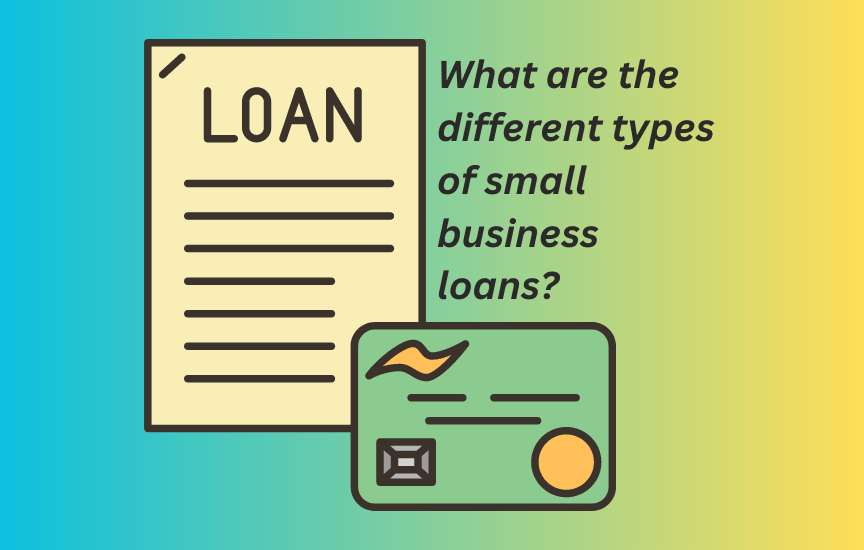As a business owner, obtaining a small business financing in NC can be a practical way to access funds. However, choosing the right loan type is essential to avoid potential delays and receiving an unsuitable financial offer. Selecting the appropriate loan will ensure you receive the funds you need promptly.
As a small business owner, you have loan options like CDC small business finance tailored to your unique requirements. You can leverage these loans to expand your warehouse or start a franchise. Moreover, certain loans can provide immediate cash flow to cover pending invoices.
Several options for small business loans include online lenders, banks, and credit unions. Here are 5 types of small business loans that could benefit your company.
CDC Small Business Loan
The CDC Small Business Loan, also called the SBA 504 loan program, is specifically intended to assist small businesses in obtaining fixed assets, like real estate or equipment. This long-term fixed-rate loan is designed with a low down payment for your convenience.
CDC small business finance corporation loans are typically structured with a three-part loan package. The first part of the loan is provided by a CDC and is backed by a 100% SBA-guaranteed debenture. A traditional lender, such as a bank or credit union, provides the second part of the loan. Typically, this loan has a variable interest rate and requires a higher down payment than the CDC loan. The small business owner provides the final loan amount and contributes at least 10% of the total project cost.
The CDC Small Business Loan is a highly advantageous option for small businesses, allowing them to borrow up to $5 million. This can make it an appealing option for businesses that need significant financing to purchase fixed assets.
SBA 7(a) Loan
The SBA 7(a) loan program is one of the most popular small business financing in NC offered by the SBA. Small businesses can now access financing up to $5 million through this program for various purposes, including purchasing inventory or equipment, working capital, or refinancing existing debt. The SBA guarantees the lender a portion of the loan, reducing risk and making it easier for small businesses to qualify. The program’s extended repayment terms are a significant advantage, with working capital loans having a seven-year repayment term and fixed asset loans having up to 25 years. Moreover, this program provides businesses with lower interest rates compared to other loan options, resulting in significant savings over the entire loan duration.
Equipment Financing
This loan is specifically designed to help small businesses purchase equipment or machinery. The loan is secured by the equipment, making it a secured loan. Equipment financing is typically structured as a term loan with a specified interest rate and a fixed repayment term.
Invoice Financing
Invoice financing is a loan that enables small businesses to access the funds they need by using their outstanding invoices as collateral. It benefits companies, allowing the lender to provide a portion of the value of the company’s unpaid invoices for business purposes. Typically, this type of loan is short-term and has a 30 to 90 days repayment period. The loan’s interest rate and fees vary depending on the lender and the business’s creditworthiness.
Lines of Credit
A line of credit is a loan that provides small businesses access to a pool of funds they can draw on as needed. With this type of loan, the lender sets a maximum credit limit, and the business can draw on the funds up to that limit as required. Interest is only charged on the amount of funds the business has drawn, not the entire credit limit.
Lines of credit are typically structured as revolving loans, which means that as the business repays the borrowed funds, the funds become available to borrow again. Interest rates and repayment terms vary based on the lender and business creditworthiness. This can be particularly helpful for companies with fluctuating cash flow or seasonal sales cycles. Additionally, because the business’s creditworthiness secures the loan, it can be easier to qualify for than other types of small business financing in NC.
Bottom line
Selecting the right small business loan may seem overwhelming with the many options available like line of credit or CDC small business finance. However, you can quickly narrow your choices by thoroughly evaluating your business requirements. Conducting extensive research on various lenders for their interest rates, fees, loan amounts, and terms will enable you to find the perfect loan that suits your needs. This process will give you the confidence to secure the necessary funding to help your business succeed.
Fear not if you’re feeling overwhelmed by the complexities of small business financing. A reliable partner can empower you to make decisive choices in small business financing in NC and will safeguard the future of your business.Trust is key in this process; we’re here to provide it. If you’re in the VA, MD, or NC areas, consider contacting 504 Capital for guidance and support in securing small business financing in NC and beyond.
